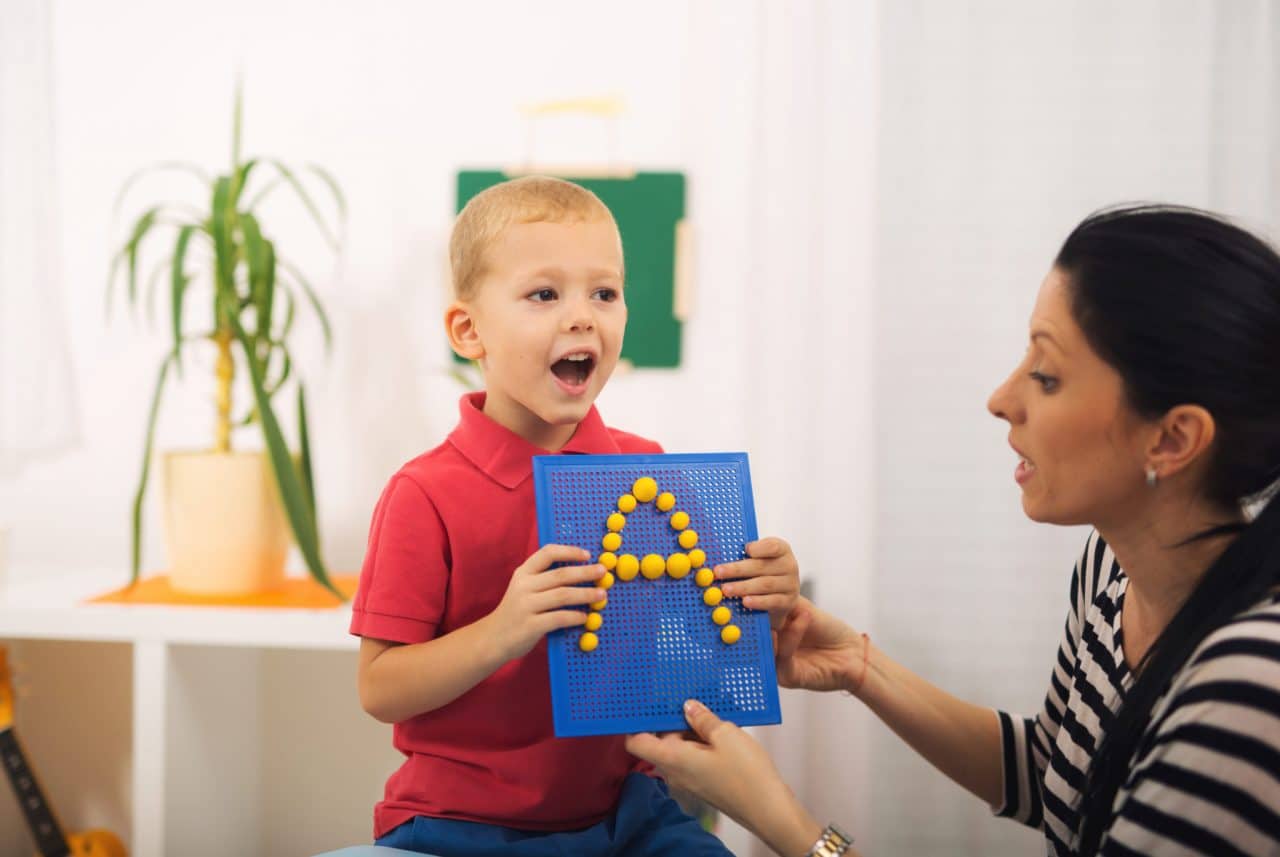Tips for Communicating with Children
Developing Communication Skills

Below are some tips that our speech-language pathologists put together to help your child master the art of effective communication.
- Talk to your child about everything you are doing; label objects, actions, and people all around your home.
- Encourage your child to participate in imitation and interactive games. Imitate their laughter, facial expressions, vocalizations, and engage them in imitating you.
- Use natural gestures to convey meaning (waving “hi,” saying “bye bye,” etc.)
- Sing simple songs and rhymes to practice the rhythms and patterns of speech.
- Read to your child every day. Comment about the pictures in the book and ask questions. Allow your child to comment and predict what will happen next in the story.
- Use speech that is clear and easily understood by your child.
- Model words and phrases related to your daily routines. Repeat what your child says and expand on what was said to encourage the use of longer phrases and more complex language structures.
- Build vocabulary through reading, enjoying a variety of experiences in everyday activities and introducing new words in familiar and unfamiliar contexts.
- Play games with your child. This allows your child to learn and practice taking turns and asking and answering questions, as well as a variety of other skills.
- If your child has speech production errors, repeat what he or she says with correct speech to draw his or her attention to the correct production patterns. If your child is receiving therapy services, be diligent in practicing homework exercises with him or her.
- Acknowledge, praise and encourage all communication attempts. Show that you understand what was said by responding appropriately.
- Limit your child’s screen time, as well as your own screen time when you are with your child.
Tips for Communicating with Your Loved One with Hearing Loss
Communication can be a challenge for both the person with hearing loss and the family members who are interacting with him or her. These are a few tips that may be helpful in reducing or eliminating those communication challenges and enhancing the communication interaction.
- Acknowledge that communication can be difficult and resolve to be positive and patient during the interaction.
- If your loved one wears hearing devices, make sure he or she has the device on and that they are working properly.
- Make sure you have the attention of your loved one before beginning to talk to him or her.
- Make sure to speak to your loved one face-to-face so he or she can also use speech reading cues.
- Do not shout. Talking louder usually makes matters worse.
- Make a deliberate effort to slow down your speech. Talking a little slower than usual often makes your voice easier to understand.
- Move closer to your loved one.
- Speak clearly.
- Rephrase your message. If repeating your message once does not help your loved one understand what you have said, rephrase your message by using different words that express the same ideas.
- In the beginning of your conversation, it may be helpful to state the topic so your loved one has a clear idea of what you are talking about.
- Pay attention to background noise. If there is any noise in the background, your communication exchange will be more difficult. Turn down the noise or move to a quieter place. Plan ahead for eating out or attending community functions so your loved one can be positioned in the place where optimal communication can occur.
- Confirm details with your loved one. Politely check to be sure that your loved one has understood the key details of your message.
If you have concerns about your child’s development of communication skills or a loved one’s hearing or communication skills, call Heuser Hearing Institute at (502) 584-3573 for more information or to schedule an appointment.